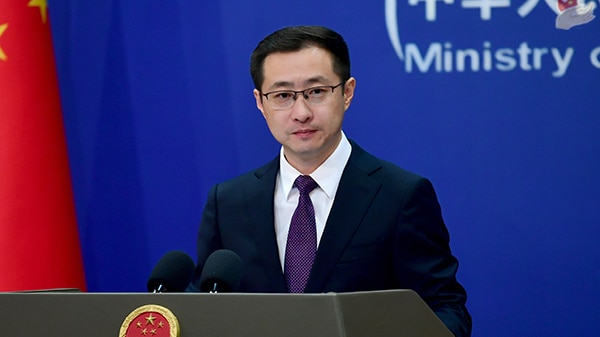Criticizing the attempts made by certain countries to interfere in Venezuela’s internal matters by repeatedly questioning the victory of Nicolás Maduro in the recent presidential elections, China called for respect to Venezuela’s sovereignty and the choices made by its people in deciding who would govern them.
Chinese Foreign Ministry spokesperson Lin Jian said on Monday, August 26 that the “Venezuelan people’s choice should be respected,” and that “Venezuela’s right to independently choose [its] development path should be respected.”
While questioning the stances taken by the U.S. and some of its Latin American allies, Jian emphasized that China believes “the Venezuelan government and people are capable of handling their internal affairs.”
Chinese President Xi Jinping was one of the first world leaders to congratulate Maduro after the election results were announced.
As reported by the International Department of the Central Committee of the Chinese Communist Party (CPC) on August 6, President Xi underlined that “President Maduro has led the Venezuelan government and people in pursuing a development path suited to their own national conditions, making remarkable achievements in national construction.”
Xi has asserted that Venezuela is a good friend of China, extending Chinese support to “Venezuela’s efforts to safeguard national sovereignty, national dignity and social stability, as well as Venezuela’s just cause of opposing external interference.”
China has already decided to upgrade its relations with Venezuela to the most important level by calling it an “all weather strategic partner” during the visit of President Nicolás Maduro in September of last year.
Hybrid war
President Maduro was reelected with over 51% of the popular vote in the presidential election held on June 28 this year.
The Venezuelan opposition, led by right-wing candidate Edmundo González and figurehead María Corina Machado has, however, refused to accept the results and claimed victory. This far-right opposition has maintained their position despite both the National Electoral Council (CNE) and the Supreme Court of Justice (TSJ) of Venezuela validating Maduro as the winner.
The U.S., its European, and some Latin American allies, have been attempting to delegitimize the election results by creating misinformation through the international press, accusing the Maduro-led government of fraud.
The U.S. has a history of interfering in Venezuela’s internal affairs by refusing to recognize democratically elected presidents and promoting illegitimate government figures, such as the infamous Juan Guaidó, through financial and diplomatic means. The U.S. has tried to isolate Venezuela diplomatically and has imposed over 900 illegal unilateral coercive measures against it, placing a stranglehold over the economy and impacting the lives of millions of people.
Venezuela and members of the Bolivarian Alliance for the Peoples of Our America—People’s Trade Treaty (ALBA-TCP) have criticized the attempts made by the U.S. to intervene. They claimed such moves violate sovereignty, one of the fundamental principles of the United Nations and international law.
They have dubbed the imposition of sanctions, the support of military coups or other regime change methods such as a concerted disinformation campaign against the elected governments in Venezuela and Bolivia as “hybrid war,” waged against the people of countries who have rejected pro-West economic policies and imperialist interventions.
In a recent meeting of the leaders of ALBA-TCP, Maduro called the current U.S. position an attempt to “colonize” the Caribbean nation.

